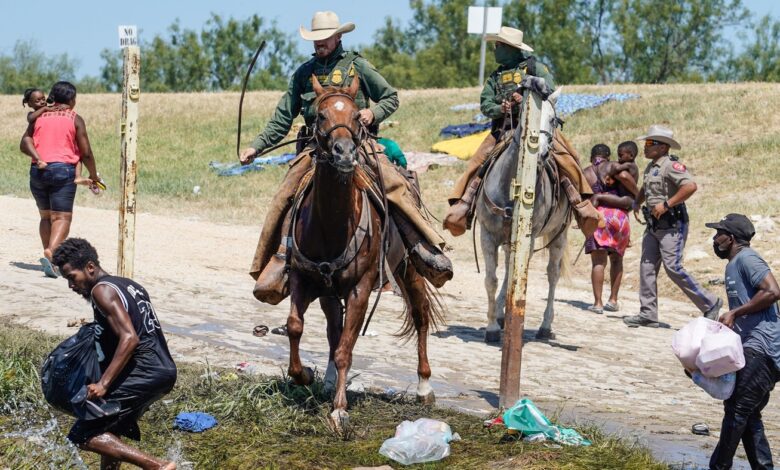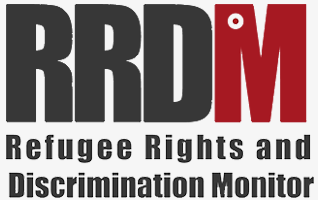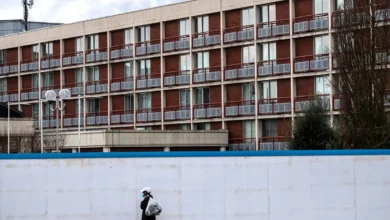USA: Torture and other ill-treatment of Haitian asylum seekers is rooted in anti-Black racism

By| Amnesty
US authorities have subjected Haitian asylum seekers to arbitrary detention and discriminatory and humiliating ill-treatment that amounts to race-based torture, said Amnesty International today in the new report, ‘They Did Not Treat Us Like People’: Race and Migration-Related Torture and Other Ill-Treatment of Haitians Seeking Safety in the USA.
These human rights violations, along with mass expulsions under Title 42, are the latest chapter in a long history of detention, exclusion, and the practice of trying to deter Haitians seeking safety in the United States, rooted in systemic anti-Black discrimination.
“One year ago, the Biden administration condemned the shameful scenes of mounted Border Patrol agents violently dispersing Haitian asylum seekers in Del Rio, Texas. Despite this, US authorities have continued to restrict their right to seek international protection at the US-Mexico border,” said Erika Guevara-Rosas, Americas director at Amnesty International.
“They have also continued to evoke the evils of slavery by shackling and handcuffing Black Haitians onboard expulsion flights, inflicting further pain and mental suffering upon them that amounts to torture under international human rights law. Our research provides ample evidence that systemic racism is embedded within the US immigration system, as described by Haitian asylum seekers interviewed for this report.”
The report shows that successive US administrations have tried to deter Haitian people from claiming asylum in the United States through the application of various policies designed to intercept, detain, and remove them, starting in the 1970s and continuing with Title 42.
One year ago, the Biden administration condemned the shameful scenes of mounted Border Patrol agents violently dispersing Haitian asylum seekers in Del Rio, Texas. Despite this, US authorities have continued to restrict their right to seek international protection at the US-Mexico border.Erika Guevara-Rosas, Americas director at Amnesty International
Nicole Phillips, legal director at Haitian Bridge Alliance, an organization that has been at the forefront of highlighting the mistreatment of Haitians by US authorities said: “Last September the world watched in horror as photos went viral of a mounted Border Patrol officer using his reins to whip at Mirard Joseph, one of about 15,000 Haitian people seeking protection in Del Rio, Texas. As appalling as the incident was, it was the tip of the iceberg of decades of mistreatment to deter Haitians from seeking safety in the United States. We hope the recommendations in this report will spark a dialogue among US authorities to dismantle the race-based discrimination and torture that Haitians and other Black migrants often face in the US immigration system.”
All 24 people that Amnesty International interviewed in Haiti for this report appear to have been expelled under Title 42 between September 2021 and January 2022. None of them had the opportunity to go through an individual assessment by asylum officers (fear-based screenings) before being sent back to Haiti. According to the testimonies gathered, US officials even detained babies as young as nine and 14 days old, and in several cases separated them from their parents. These are violations under international law. Haitians interviewed also stated they did not have access to interpreters, legal representation, or information about the place of their detention or the reasons they were being held, which constitutes arbitrary detention.
Additionally, none of the Haitians that Amnesty International interviewed reported that they were tested for Covid-19 or offered vaccines at any point during their detention or prior to expulsion. Many also noted they were not provided masks or able to physically distance themselves from others, which undermines claims that Title 42 expulsions are designed to prevent the spread of Covid-19.
The ill-treatment Haitians experienced in US detention facilities – which included a lack of access to sufficient food, healthcare, information, interpreters, and lawyers – had a cumulative impact on those interviewed for this report, as they had already suffered a range of human rights violations, including anti-Black racism, throughout their journey to the United States.
Finally, all 24 Haitians interviewed by Amnesty International said they were returned to Haiti by plane in handcuffs and shackles – treatment that caused them severe psychological pain and suffering due to its association with slavery and criminality. In the assessment of Amnesty International, based on the testimonies gathered, this amounts to torture based on their race and migration status under international human rights law, which absolutely prohibits torture and other ill-treatment, and requires states to protect people from all acts of torture, including those based on specific vulnerabilities such as race, migratory status, and nationality.
A history of anti-Black racial discrimination
The history of enslavement of people of African descent and contemporary forms of systemic anti-Black racism are a critical backdrop to this research. As evidence highlighted in the report suggests, practices of ill-treatment towards Haitians are widespread and have occurred historically at different times and in different places, pointing to long-term and systemic racial discrimination within the immigration system with the aim of punishing Haitian people and deterring them from seeking asylum in the United States.
We hope the recommendations in this report will spark a dialogue among US authorities to dismantle the race-based discrimination and torture that Haitians and other Black migrants often face in the US immigration system.
Nicole Phillips, legal director at Haitian Bridge Alliance




